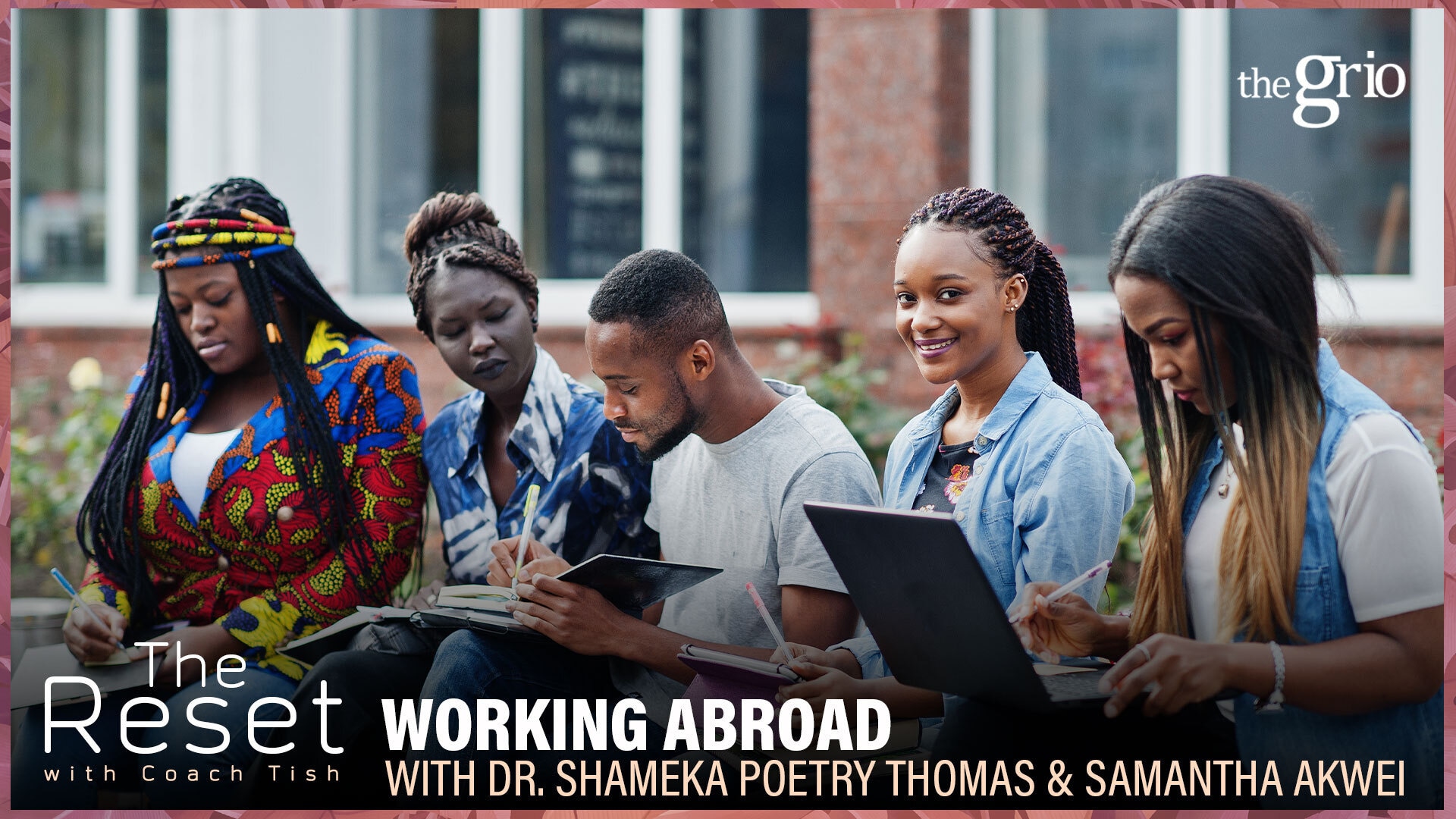We bring news that matters to your inbox, to help you stay informed and entertained.
Please fill out this field.
Terms of Use and Privacy Policy Agreement
Please fill out this field.
WELCOME TO THE FAMILY! Please check your email for confirmation from us.
On this week’s episode of ‘The Reset with Coach Tish,’ two American women living and thriving in Ghana share their experiences working abroad.
Since “The Year of Return, Ghana 2019,” it seems we haven’t stopped returning to the motherland. In my circle of family, friends, and associates alone, travel to Ghana keeps expanding, from my brother-in-law and his family to my aunt planning a trip. Now, I even have clients working abroad. Ghana is continuously calling us home — and we’re coming.
We’ve seen the retreats and celebrities documenting their visits, but I wanted to look at traveling abroad to Ghana through another lens: Work. What is it like for African Americans to pack up their lives to live and work in Ghana? Luckily, it was easy for me to find two women doing just that. As we pushed through spotty WiFi, they graciously opened up about their experiences during a Zoom conversation, in which they talked about the life-changing opportunity to work from West Africa. You can watch our conversation above.
The two women are Spelman College sisters and friends living and working in Ghana in two different capacities. Shameka Poetry Thomas, Ph.D. is a 2022-23 Global Health Fellow, joining the Department of Global Health and Population for the new academic year at Harvard University. Dr. Thomas is a medical sociologist and reproductive health scientist working in Ghana as the principal investigator on a scientific research project at the University of Ghana-East Legon. She also has her own company, Dr. Poetry Speaks Health. As she explained during our conversation, Dr. Thomas has found a way of life in Ghana that resonates deeply with her spirit.
“For me, what really speaks volumes is being in the genuine flow of human life here. Seeing the children playing in the hometowns, in the village; being able to be grounded and walk barefoot out on the porch,” she said. “Sometimes, I’m doing my data collection or analyzing data from the porch swing. I’ve been able to have more pockets of freedom in the way I do my research, and it has been very healing and transformational for me to do it in this capacity.”
Samantha Akewi is an artist and a public servant currently working remotely in Ghana as a talent sourcing manager at the US-based company Mozilla while also volunteering for Accra Art Week. Akewi’s family is from Ghana, and she’s visited several times, but it was a 2020 trip that deepened her connection to the country. Her Ghanaian grandmother had died of COVID complications, and that same year, Akewi was recruited to volunteer with the organization Global Shapers, where global leaders get together to amplify the voices of young people around the world. Her thirst for global impact and legacy creation was birthed that year.
“When I think about just being here and being able to work the day-to-day technical stuff but also being able to think what is my legacy going to be? And I think, sometimes, when matriarchs die, there’s the question of ‘Am I just existing, or am I living? Do I have shoes to fill?’ So I think I’m in the process of doing all of that right now, and it just feels extraordinary to be able to live this life at this point in time,” Akewi explained.
Like anywhere else in the world, there are drawbacks to living and working abroad in Ghana. It took several months for Dr. Thomas to navigate simple workplace practices like email (to hear her tell this story, watch the interview). Both are careful not to romanticize work there, with Akewi additionally pointing out that the increase in tourism has increased the prices of goods for locals — which makes living in Ghana less affordable, as local wages haven’t necessarily changed. Patriarchy, corruption, and bribery are also still prevalent and something to be cognizant of — but not to be put off by, as those issues certainly aren’t exclusive to Ghana.
Still, I couldn’t help to sense how at peace both women seemed during our interview. Sure, our WiFi was spotty, and Akewi was sitting in her home with no electricity, but neither woman carried that weight. They were free. Akewi says part of that freedom comes from the acceptance she feels just being herself.
“There is this notion that the West is always right, that European is always right. And I think that being here challenges a lot of those notions as it relates to beauty,” she said. “You can be your natural self here without being ridiculed. You can wear your natural garments here. And as related to tradition, there’s a sense of pride that comes with that. And you don’t necessarily have to do what the West is saying or glorify an identity that you don’t ascribe to.”
Just like everywhere else, Ghana is a flawed country. But after speaking with two African Americans living and working in Ghana, I’m convinced a season, a trip, a year — whatever time we can manage to spend there in our lifetimes could be transformative, both in how we do work and how we do life. Watch the full interview on this week’s episode of “The Reset with Coach Tish,” above.
Letisha Bereola is a life coach who helps ambitious women overcome burnout and reach their career goals, so they feel great at work and happy at home. She’s a former Emmy-nominated TV news anchor, Podcast host of AUDACITY, and a speaker. Learn more at www.coachtish.co.
TheGrio is FREE on your TV via Apple TV, Amazon Fire, Roku, and Android TV. TheGrio’s Black Podcast Network is free too. Download theGrio mobile apps today! Listen to ‘Writing Black‘ with Maiysha Kai.

